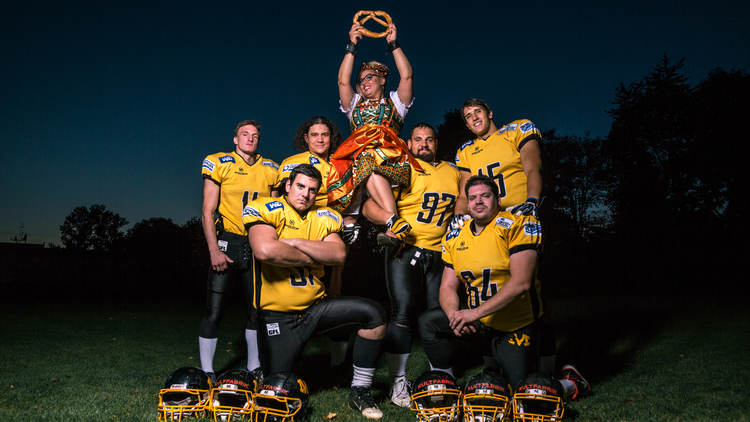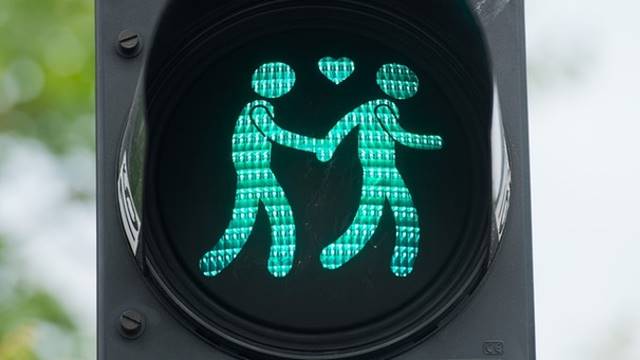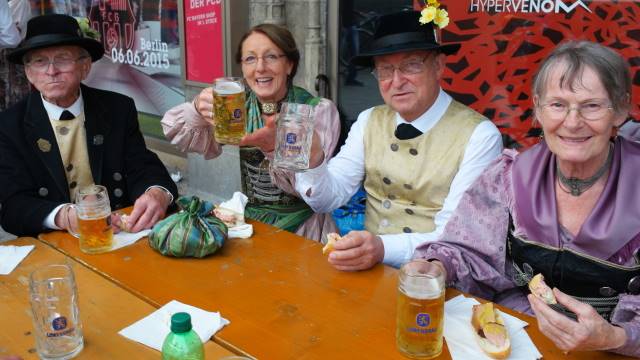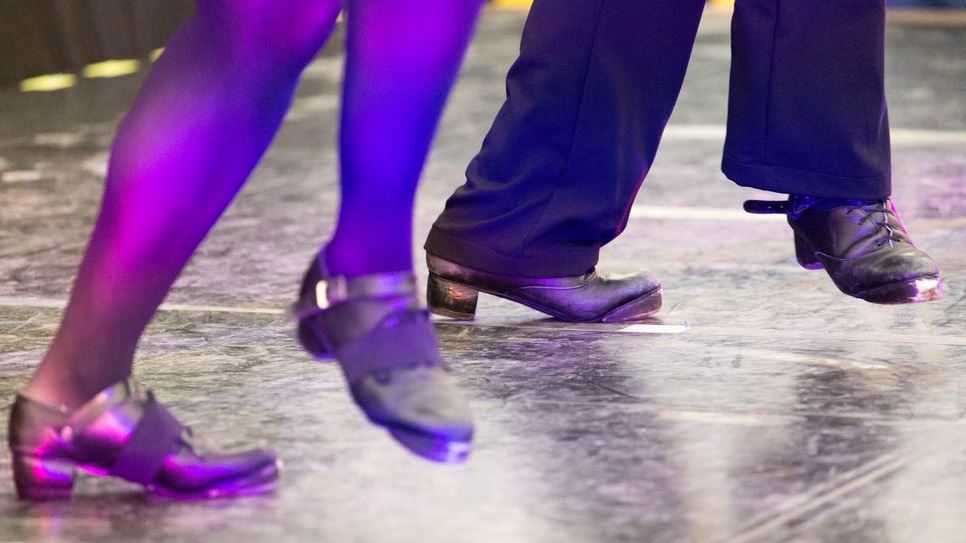
MUNICH (MunichNOW Life) -- Like many things, friends and aquaintances in Germany have special characteristics that can take some getting used to.
1. A normal friend wants to immediately hear your entire history.
A German friend wants to look at you suspiciously then slowly get to know you.
Germans are not open books. They can initially come off as a little humorless and somewhat suspicious, particularly to overly gregarious Americans. My main take-away regarding the people I met during my first few months in Germany was that these people are not willing to “play along” — if they don’t like something, they’re going to let you know, bluntly and immediately.
As I got to know some of my coworkers better, my impression changed radically. After I took the time to get to know people slowly, I learned that the friendship was worth the wait.
A few liters of pils also helps this process along.
2. A normal friend will say they like your outfit when they really don’t.
A German friend will tell you that what you’re wearing looks like shit.
Bluntness has its place. If you’re waffling about whether or not to try and bring back the dresses-over-jeans look, ask a close German friend for their opinion.
3. A normal friend will brag about their extended weekend at an all-inclusive resort in the Bahamas.
A German friend will take off for vacation and you won’t see or talk to them for a month.
I flew standby out of Germany on August 1st once, and it was a huge mistake. Everyone was off for a month of vacation, and all the flights were booked solid for days. In Germany, people cherish traveling with family and friends. They actually use their vacation benefits and return to work weeks later energized from it.
In the US, perpetual, very vocal “busy-ness” is a way of life, leading most people to fret over taking even a week off.
4. A normal friend will lend you their latest diet book.
A German friend will talk to you about the American obesity crisis with a cigarette in one hand.
Germans and Americans have very different ideas about health. Americans, particularly those in the northeast and west, tend to abhor cigarettes, while smoking is much more accepted in Germany. Americans eat more and poorer-quality food and get much less exercise than Germans, and regulations on soda sizes and trans fats are hotly debated as limitations on personal freedom.
These cultural proclivities shape views about healthy lifestyles in interesting, mutually biased ways. American health outcomes are pretty universally terrible compared to the rest of the developed world, so maybe there’s something to the German attitude.
5. A normal friend will wish you a quick happy birthday on Facebook.
A German friend will be expecting a cake — from you on your birthday.
On my 24th birthday in Leipzig, I was scrambling to finish up some final lab work before I left for Ethiopia for two months. I knew from observing other people’s birthdays that it was my responsibility to bring a cake for my coworkers, but in my haste to wrap up work, I had completely forgotten. I barricaded myself in the windowless DNA extraction room all day, hoping to fly under the radar.
In the late morning, I heard some rustling at the door and turned to see my coworker’s head peeping in.
“Today is your birthday?” she asked.
“Yes,” I reluctantly admitted.
“Happy birthday! When shall we meet for cake?”
I paused. “I’m really busy today, could we maybe do it another time?”
She looked at me blankly.
After another long, uncomfortable pause, I capitulated. “Okay, two hours?” I asked.
“Sure — see you in the kitchen. I’ll bring tea.”
Two hours later, I was sprinting up the walkway to my building with a hastily purchased cake in my arms, sweating and cursing the whole way. German cakes are damn good, though, and getting to cash in on all the other birthday cakes throughout the year was pretty awesome.
6. A normal friend won’t think it’s weird if you don’t want to have kids.
A German friend might ask you: “Why not?”
When I was back in the US, I had a German co-worker who was expecting a child. She and her husband were both genetics researchers, but their salaries were not nearly enough to live off of in Boston, and so they were returning home soon after the baby was born.
“Do you want to have kids?” she asked, patting her stomach.
“Uh, I don’t know. I’ll be about 36 when I’m done with med school and residency, so probably not.”
It blew her mind that these details entered into the equation, particularly for women — that, in order to pursue education and a career, family was often put off indefinitely.
In Germany, parents are very well supported in their efforts to start families. Many women that I worked with in Leipzig took well over a year off work during their baby’s early life, and their company simply hired a temporary worker until the mother decided to return to work.
7. A normal friend just wants to watch television alone in bed on a winter’s day.
A German friend wants to sit with you at an outdoor café.
Winters in Leipzig are similar to those in Boston — cold, snowy, and by February, pretty bleak. In Leipzig, however, the bad weather is made a little more bearable by outdoor activities.
Restaurants keep their outdoor areas open as long as possible and use heaters and blankets to entice customers outside. From roughly November to January, you can find a Weihnachtsmarkt in most cities. At these winter markets, people can sip Glühwein (mulled wine), eat Lebkuchen (gingerbread cookies) and Bratwurst, and buy handmade gifts at the stalls.
It sure beats my method of surviving winter back home: stuffing myself into a onesie and watching Netflix in bed until April.
8. A normal friend won’t go anywhere without looking at its Yelp reviews.
A German friend knows that the best parties happen in unlikely places.
I was pretty skeptical about many things when I first moved to Leipzig, and the nightlife was no exception. The first “club” I went to was called the Staubsauger, which translates to “vacuum” in German. The tiny, dim room housed a small bar and a couple of video games, at which a few angsty-looking youths lounged apathetically.
“I thought we were going out dancing,” I muttered to my friends as I distastefully scanned the room.
“Oh, the dance floor is down here,” my friend said, gesturing to a small door at the back. We opened it and climbed down rickety stairs to a tiny, windowless concrete basement. The DJ was setting up atop an unfinished plywood loft, and a few grimy couches slumped underneath the structure.
“This looks like my grandmother’s basement,” I muttered, sinking into one of the couches.
Over the next half hour, the dank, empty little room filled with people, the dimming lights camouflaged the concrete and shitty furniture, and the music began to pulse through the small, acoustically ideal space. From that night on, the Staubi became my group of friends’ go-to bar.
9. A normal friend will get uncomfortable when someone’s naked.
A German friend will tell you to stop clutching your pearls about everything.
There’s an odd overlap of puritanism and hedonism in the US — a drinking age of 21 juxtaposed with a massive binge drinking culture, panic over nudity coupled with overtly sexual advertisements inundating every form of media, harsh judgment of parents who have kids out of wedlock existing uneasily with high teen pregnancy and divorce rates.
I find German straightforwardness about these issues to be refreshing. Many events in Germany involved both beer and families, including small children. Naked bodies are neither deified nor shamed. If parents want to have kids, they choose when and how.
10. A normal friend will assume they’re the one who’s normal.
A German friend will tell you to take your “American exceptionalism” attitude down a notch.
When I picture an old friend from Germany reading this, I know that the first thing out of their mouth would be, “What the fuck is a normal friend?”
Americans tend to be an egocentric bunch, and our focus on our own importance can lead us to default to our own culture a universal point of reference. But the more we travel and meet new people, the more we learn how big the world is. America certainly does not equal normal, because there is no such thing.
And that’s a beautiful thing.
This article first appeared at matadornetwork.com
Worth checking out
- Casino En Ligne Retrait Rapide
- Casino En Ligne Fiable
- Migliori Casino Online
- Casinos Not On Gamstop
- 해외 홀덤사이트
- Casino Non Aams
- Casinos Not On Gamstop
- Casino Sites Not On Gamstop
- UK Casinos Not On Gamstop
- Casino Not On Gamstop
- Best Non Gamstop Casinos
- Gambling Sites Not On Gamstop
- UK Casino Not On Gamstop
- UK Casinos Not On Gamstop
- UK Casino Not On Gamstop
- Non Gamstop Online Casinos
- Casinos Not On Gamstop
- Non Gamstop Casinos
- Casino Non Aams
- Slot Sites UK
- UK Online Slot Sites
- Online Casino Zonder Cruks
- Non Gamstop Casino UK
- Casino Not On Gamstop
- UK Casinos Not On Gamstop
- Casino Online Non Aams
- Casino Online Italia
- Meilleur Casino En Ligne Belgique
- Non Aams Casino
- Online Casino Visa
- Nouveau Site De Poker En Ligne
- KYC 인증 없는 카지노
- Meilleur Casino En Ligne Français
- Meilleur Casino En Ligne
- Casino Italia Non Aams
- Meilleur Casino En Ligne
- Casino En Ligne
- Meilleur Casino En Ligne France













